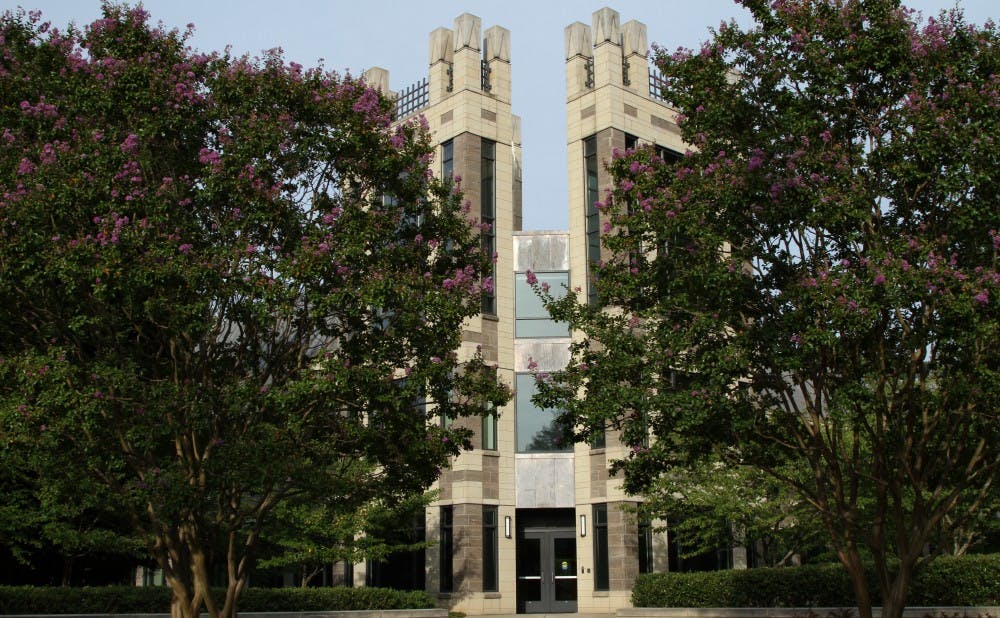As the University of Chicago takes a stand against “safe spaces” on campus, the Sanford School of Public Policy is embracing the concept.
Dean of Students John Ellison at the University of Chicago stirred controversy last week when he sent out an inagural message to the Class of 2020 making it clear that “trigger warnings” and “safe spaces” were not condoned. Reactions to the letter have been mixed, with some applauding the strong defense of unfettered free speech and others decrying it as insensitive and misguided.
“Our commitment to academic freedom means that we do not support so-called trigger warnings,” Ellison said in the letter. “We do not cancel invited speakers because their topics might prove controversial, and we do not condone the creation of intellectual ‘safe spaces’ where individuals can retreat from ideas and perspectives at odds with their own.’”
The debate over free speech has hit home at Duke as well. Last January, the Open Campus Coalition published an open letter arguing that intellectual expression at Duke has been diluted. It said that “identity politics” have trumped “reasoned discussion” and that there was a “climate of fear” on behalf of those who publically dissent from mainstream views.
In particular, it cited demands for the resignation of Jonathan Zhao—the former editorial page editor at The Chronicle—after he wrote a controversial column as well as a community forum in which administrators were not allowed to ask questions.
The “Demands of Black Voices,” released at the community forum which listed desired administrative actions and changes in policy, has also drawn criticism from some free speech advocates.
Robert Shibley, Trinity ’00 and executive director of the Foundation for Indvidual Rights in Education, registered concern with the demand for a “protocol for hate speech incidents.” Although he said he supported the right to protest on campus in general, he noted that this demand went too far.
“A safe space for one challenged group makes other groups less safe, because the only way to make it safe for one group is to punish others,” he said. “It’s by definition unsafe for those opposed to that.”
As these discussions continue, the Sanford School of Public Policy is looking to destigmatize the “safe space”—promoting it instead as a complement, not impediment, to effective debate.
Rubenstein 120
During the past year, the Sanford Committee on Diversity and Inclusion has been working on setting up a physical “safe space” of its own, said Kathryn Whetten, committee co-chair and a research professor of global health.
The room—called the “Sanford Safe Space”—will make its debut this year in Rubenstein 120, Whetten’s old office. She said the room will be an experiment in helping people heal, and that a social worker will also be present. The door will be open to all groups, she said, ranging from minorities to military members to conservatives.
“We want to have a place for people who feel marginalized and face constant attention for characteristics that are immutable—like their skin color or their religion, their immigration status or whether they’re from another country—to be able to heal,” she said.
The program is intended to serve as more of a “general concept,” Whetten said, although the physical location still holds some value.
In addition to the safe space, the Sanford School is looking to set up a discussion series throughout the year that will tackle issues of free speech, microaggressions and challenges like policing that are being grappled with worldwide.
Other safe spaces
Although Sanford might be one of few places to assign a physical “safe space” room, it is not alone in promoting similar concepts on college campuses.
American University has a safe space workshop, for example, as does the University of California-Berkeley. The University of Chicago itself has a “safe space program” in the Office of LGBTQ+ Student Life.
Ellison’s letter was not meant to suggest students could not rely on support programs and that teachers could not help students deal with difficult material, wrote Jeremy Manier, assistant vice president of communications at Chicago. He noted that Chicago offers private counseling and that other campus groups provide mutual support structures.
Whetten also pushed back against the “either-or” formulation she said critics of safe spaces tend to follow. In her view, safe spaces actually promote rigorous discussion because they give marginalized individuals the confidence to feel comfortable speaking up.
“This assumption I’m reading into is that by having safe spaces you’re coddling free speech or debate, and I don’t believe that safe spaces and rigorous engagement are contradictory to each other,” she said. “I think they are actually complementary. Having spaces can make them more willing to express themselves in debates because they’re able to be with similar people.”
Would it happen at Duke?
For his part, Larry Moneta, vice president for student affairs, said Duke takes a more nuanced approach to issues of contrversial speech. Unlike Chicago, he said, he disliked drawing “too fine a line in the sand.”
People have to recognize that expression has consequences, and protecting the right to expression should be accompanied by thorough discussion of the ramifications, Moneta noted. He cited Orientation Week, which just ended, as a perfect example of this.
“It’s the best example of fostering honest and open dialogue and creating an open space for people to talk about comments that might have been made out of ignorance, not even hate, and to be able to say something and talk about it,” he said.
Asked if he would ever send out a similar letter, Moneta said “not in that tone.”
“I can’t imagine I would ever be as cut-and-dry as that,” he said. “It would be far more nunanced in terms of encouraging people to think through the consequences of what they say and do.”

